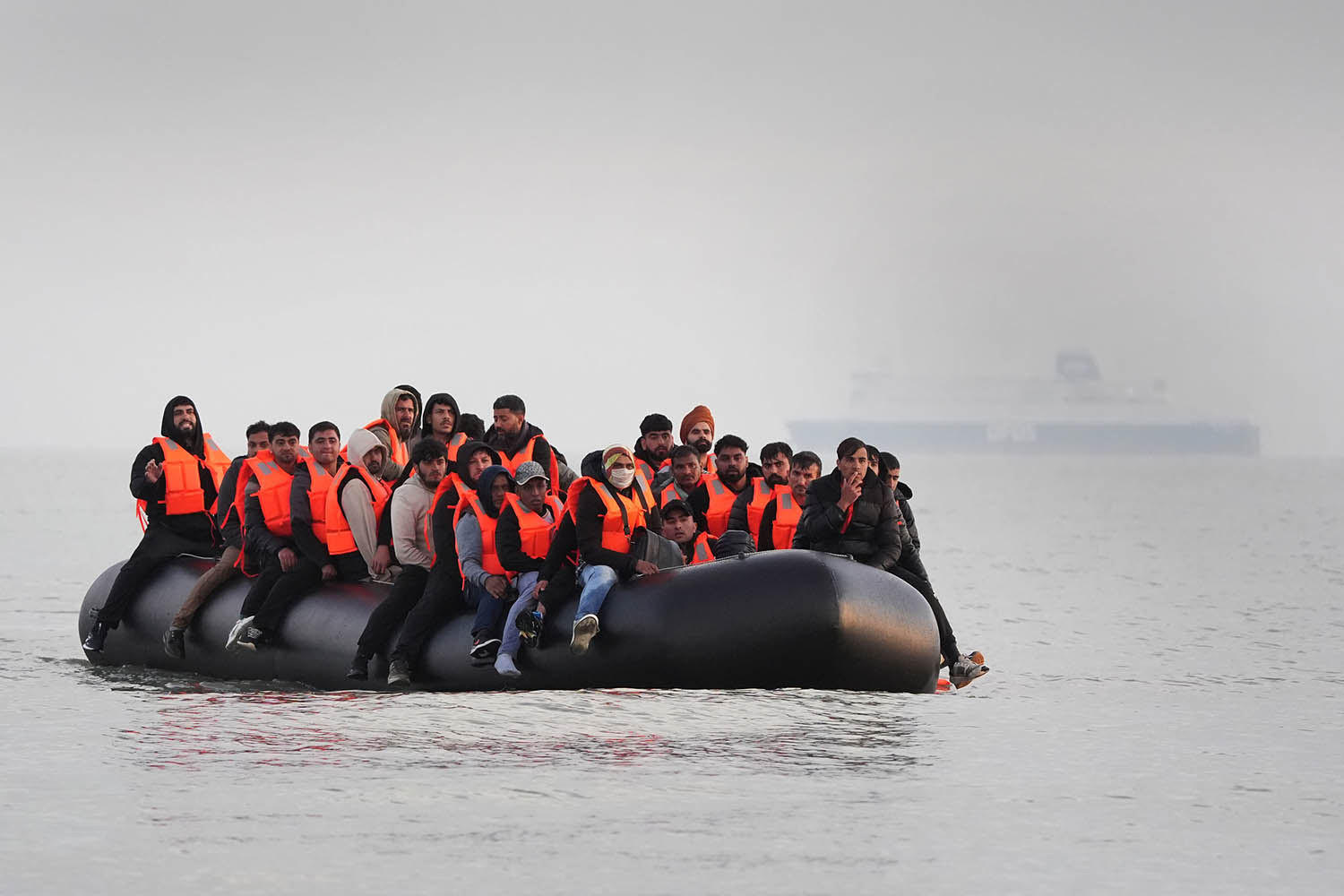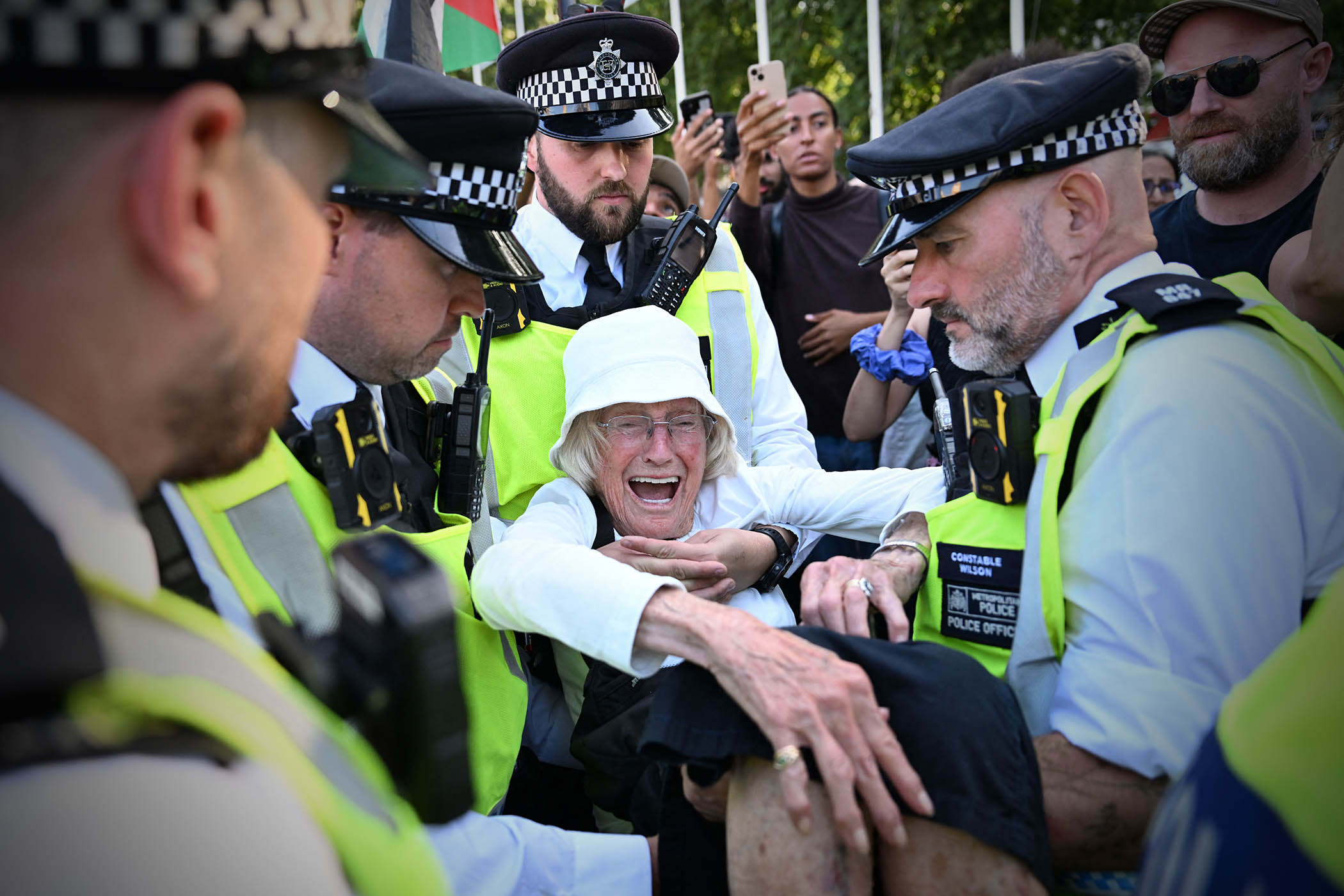Are sunny skies really to blame for the persistent number of small boats crossing the Channel? That was the contention of the Home Office this week, which drew a link between balmy days and the near 50% rise in arrivals since this time last year.
Critics have accused the government of “blaming the weather”, pointing out that there has also been a significant increase in people making the journey even when conditions are not ideal. An average of 60 people a day now attempt the journey on “low viability” days, up from three in 2020.
But this misses an even sharper critique. It is in fact true that an incidental rise in “good sailing days” has made a huge difference in the numbers of small vessels alighting on our shores. And that gets to the root of the problem. Keir Starmer has made a promise to deal with a situation over which he has extremely minimal control. The weather is just the start of it.
His promise is to “smash the gangs” behind the smuggling. But this will, of course, be interpreted as a commitment to bringing down numbers of arrivals. It is unlikely to work. When it comes to these gangs, there are few structures you can easily “smash”. They are disparate, decentralised, fluid, shifting and opportunistic. The most senior people operate internationally, often in places far beyond British and EU jurisdiction. And their juniors are quickly trained and expendable: low-level smugglers employed to collect money and chivvy people on to a vessel are easily replaced. Some “smugglers” are in fact migrants themselves, who may agree to steer a dinghy in exchange for free passage. Meanwhile, as time goes on, they become better resourced, more professional and better at evading authorities. It takes a lot of resources to find, arrest and investigate smugglers. This is an arms race we are unlikely to win.
By making smuggling more risky, you raise profits – and lure in criminal gangs
By making smuggling more risky, you raise profits – and lure in criminal gangs
But the central reason we have such little control over the small boats problem is to do with economics. Demand for this service is high, and operating it is extremely lucrative: dinghies are cheap, and people are now willing to pay some £5,000 each, up from an average of £1,500 in 2023. As in the “war on drugs”, attempts to catch and punish suppliers will not work when it is so cheap and easy to set up shop and the returns are so huge. Arrest a cannabis producer, or a people smuggler, and two will pop up in their place. If disrupting the gangs temporarily raises prices, there are plenty still willing to pay.
As in the war on drugs, stepping up punishments and policing often has perverse effects. Increasing patrols on beaches is likely to encourage smugglers to cram more people on to vessels when they have the opportunity. This of course increases the risk that they will capsize: a reason many are so concerned about the issue in the first place. Increased security on the French side may also unintentionally ramp up the crossings themselves.
By making it more difficult to cross the Channel, you cause smuggling to become more risky and expensive. This in turn raises both cost and profits, luring in sophisticated criminal gangs with more resources. And when smuggling gets more professional, it then becomes harder to stop. Then, too, success by the last government in reducing the numbers of stowaways in lorries is what has partly led to the small boats problem in the first place. Shut off one route and another opens.
After an agreement with Albania to fast-track returns, numbers declined
After an agreement with Albania to fast-track returns, numbers declined
It might be better to address demand. One idea, popular on the left, is to reduce desperation among Channel crossers by creating more “safe and legal routes” to seek asylum. That may help, but it also has its limits. Despite the UK’s Afghan resettlement scheme, which opened in 2022, Afghans remain among the top nationals attempting the journey. That is probably because the scheme is capped; we have promised to take in only 20,000 people in total. But opening an uncapped or expansive visa scheme for all foreign nationals interested in getting to Britain would be politically difficult. When demand is this high, safe and legal routes may not make much difference.
What actually works, then, to reduce demand? Data from Australia suggests intercepting boats early in their journey is very effective if done at scale. This week we heard that France will start doing the same. But these measures put lives at risk: confronting smugglers and migrants at sea is extremely dangerous. That is not a price we should be willing to pay.
Returns agreements with other countries may be a better, safer method. In 2022, 12,600 Albanians made the journey, accounting for more than a third of small boat entries. But after an agreement with the Albanian government to fast-track the return of unauthorised arrivals, the numbers dramatically declined, dropping by some 95% in the past three years. This, at last, might work.
Newsletters
Choose the newsletters you want to receive
View more
For information about how The Observer protects your data, read our Privacy Policy
It won’t be popular with everyone: returning desperate people will sit uneasily with many, as it should. There’s a larger question here about how we should manage asylum seekers, how many we should take, and who should be prioritised.
David Goodhart, head of demography, immigration and integration at the thinktank Policy Exchange, says: “Instead of this Darwinian system, where only the strongest and those who can most afford it can make the crossing, we should select the neediest from refugee camps.” He suggests we couple returns agreements and offshore processing for small boat arrivals with a more generous approach to asylum seekers elsewhere.
That might fit with our particular psychology when it comes to this issue, even though they make up a relatively small proportion of overall net migration numbers. Polling shows Britons are very opposed to small boat crossings and “illegal” migration. On the other hand, we can be suddenly open-hearted when it comes to refugees on whom the spotlight of global attention has been turned. One example is Ukrainians: at the start of the full-scale war, Brits flung open their homes and demanded more refugees be granted entry.
The small boats issue is a tricky puzzle to which reducing the appeal of crossing the Channel, in the form of returns agreements, might be the most effective solution. That may seem harsh, but we could pay our moral debts elsewhere. Opening our doors instead to some of the neediest refugees might be the answer.
Photograph by Gareth Fuller/PA



